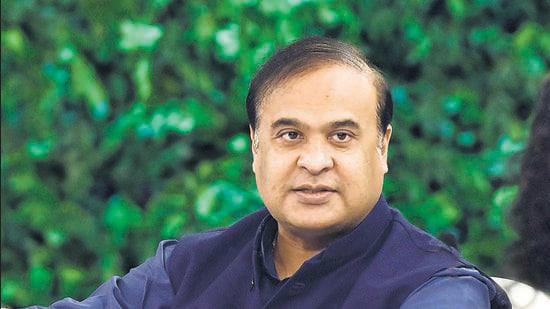Assam Chief Minister Himanta Biswa Sarma announced that 416 individuals were arrested across the state in connection with child marriage cases. This development comes as part of the Assam government’s ongoing efforts to address the deeply entrenched social evil of child marriage, which continues to undermine the well-being of minors, particularly girls, in the state.
The Government’s Stern Stance on Child Marriage
CM Sarma reiterated his government’s commitment to eradicating child marriage, terming it a priority for the state. Speaking to reporters, he emphasized that these arrests were part of a larger campaign to safeguard the rights of children and ensure their access to education and better opportunities. “Child marriage is a major impediment to the socio-economic progress of Assam. It deprives young girls of their childhood and exposes them to health risks, early pregnancies, and educational discontinuation,” Sarma stated.
The chief minister further pointed out that the crackdown was based on intelligence inputs and complaints received from various districts. Police teams across Assam were mobilized to investigate these cases and take swift action against those involved.
Widespread Arrests Across Districts
The arrests were carried out in a coordinated effort across multiple districts in Assam. Law enforcement officials reported that the cases involved both individuals who facilitated child marriages and those directly involved in marrying minors. Among the arrested were parents and guardians who had consented to or arranged such marriages.
Districts such as Dhubri, Barpeta, Nagaon, and Goalpara, which historically report higher incidences of child marriage, saw a significant number of arrests. The state police have assured that they are leaving no stone unturned in identifying culprits and bringing them to justice.
Legal Framework and Challenges
The crackdown is being conducted under the provisions of the Prohibition of Child Marriage Act, 2006, and other relevant laws. The Act prohibits the marriage of girls below the age of 18 and boys below the age of 21. Violators can face imprisonment of up to two years or a fine of up to ₹1 lakh, or both.
While the legal framework provides a solid foundation, implementing these laws in Assam has been fraught with challenges. Social acceptance of child marriage, coupled with economic hardships and lack of awareness, perpetuates this practice in rural and marginalized communities. Many families see early marriage as a way to reduce financial burdens or as a safeguard against social stigma.
Socio-Economic Implications
Child marriage has far-reaching implications for society. It perpetuates cycles of poverty, illiteracy, and poor health outcomes, particularly for girls. Early pregnancies associated with child marriage pose severe health risks, including maternal and infant mortality. Moreover, child brides often drop out of school, limiting their prospects for economic independence and personal growth.
In Assam, these challenges are exacerbated by the state’s socio-economic landscape, where many families struggle with poverty and lack of access to education. The government’s crackdown, therefore, is not just a legal intervention but also a call for social reform.
Awareness and Preventive Measures
The Assam government has launched several initiatives to raise awareness about the ills of child marriage. Campaigns involving community leaders, non-governmental organizations, and local authorities are being conducted to educate families about the legal and social repercussions of child marriage.
Education is being emphasized as a key tool to combat child marriage. The government has increased investment in schools, particularly for girls, and introduced schemes to incentivize education. “We are encouraging families to send their daughters to school by offering scholarships and other financial support,” CM Sarma said.
Public Response and Way Forward
The public’s response to the crackdown has been mixed. While many have lauded the government’s decisive action, others have raised concerns about the long-term impact on families whose members are arrested. Activists have called for a balanced approach that combines legal action with rehabilitation and support for affected families.
The crackdown has also reignited discussions about addressing the root causes of child marriage. Experts emphasize the need for comprehensive policies that tackle poverty, gender inequality, and lack of education—the primary drivers of child marriage in Assam.
As the Assam government intensifies its efforts to eradicate child marriage, CM Sarma’s message is clear: the state will not tolerate practices that jeopardize the future of its children. The recent arrests mark a significant step in this direction, but sustained efforts and community engagement will be crucial to achieve lasting change.

